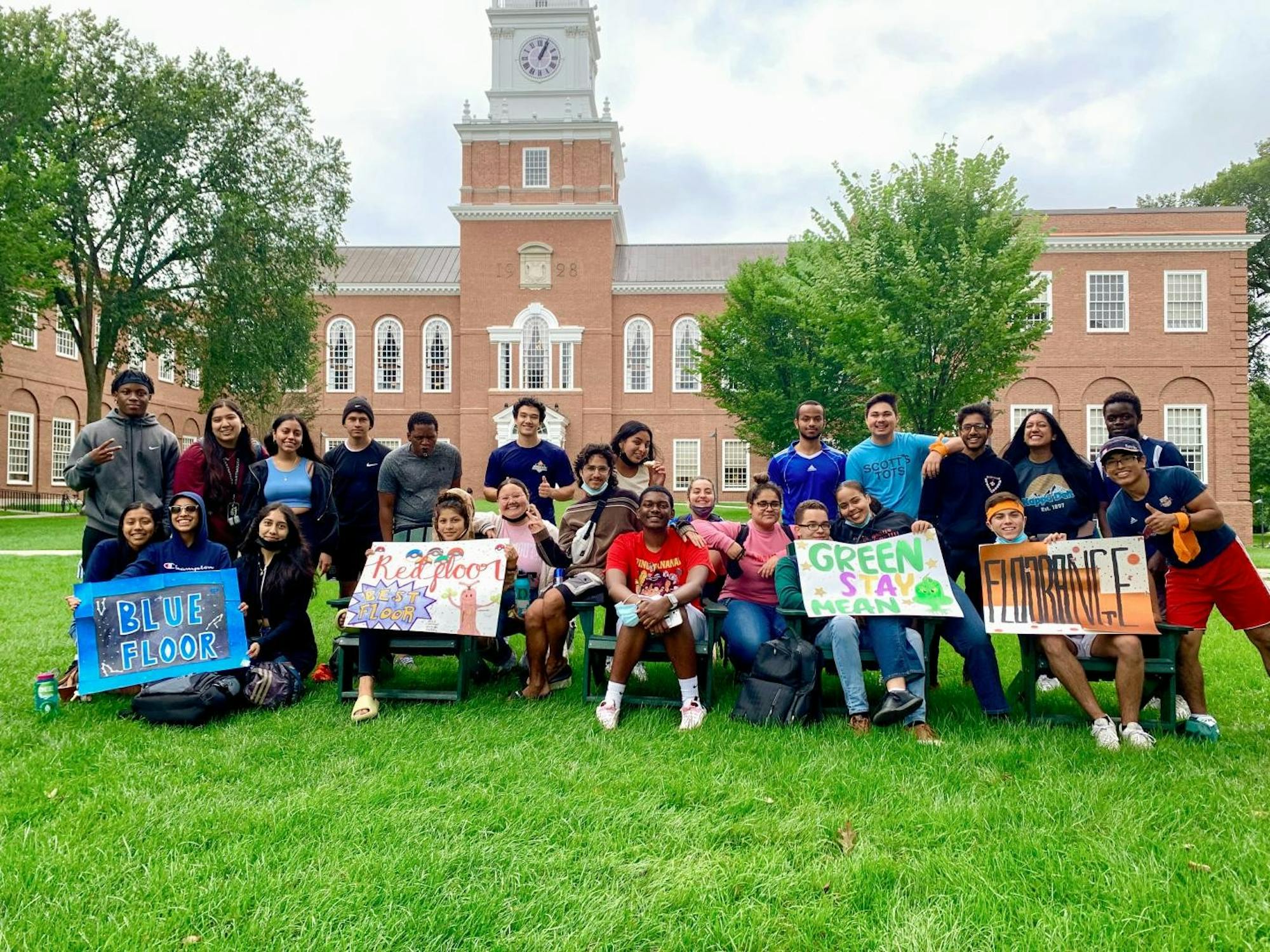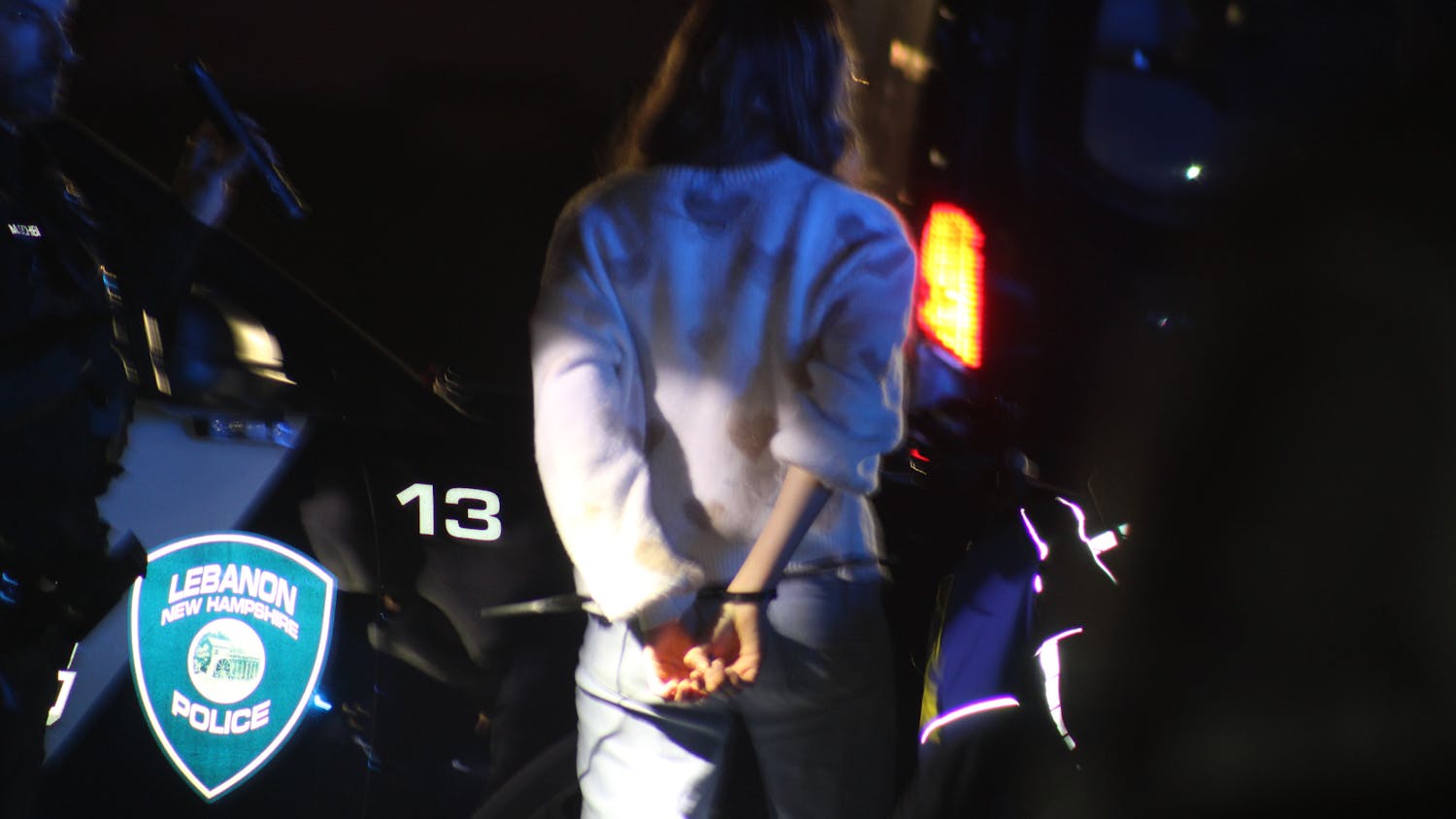An expanded First-Year Student Enrichment Program took place in person this August, following last year’s virtual programming. Students who participated in the program said FYSEP equipped them with knowledge of academic resources at Dartmouth and helped them develop communities.
The updated four-week program was made possible by a $13 million donation that allowed the College to establish a new First-Generation Office this summer and hire former Office of Pluralism and Leadership program coordinator Theresa Hernandez as its assistant director. In the past, the program ran for only five days.
The expanded FYSEP program, which started on Aug. 9 and will continue to connect students with resources throughout the year, featured three summer courses that prepared first-generation and low-income students for the academic and social environment at Dartmouth. The program also included social events — such as arts and crafts and outdoor hikes — that encouraged students to meet each other.
According to FYSEP director Jay Davis, the new program allowed FGLI students “more opportunity to build deeper connections, build deeper trust, ... connect with faculty, do work over a period of time and learn from balancing things they wanted to do with perhaps the academic work they had to do.”
Davis said that because of the extended timeframe, he felt that the academic portion of the program improved the most because professors could better simulate a college course load over a longer period. During their time at FYSEP, students took three courses that cover college knowledge, introductory STEM and culture, identity and belonging.
FYSEP participants reflected on their uncertainties before arriving at Dartmouth and said their experiences with the program have been positive.
“Before FYSEP, I felt extremely nervous,” Rosario Rosales ’25 said. “I knew that the environment and everything was going to be different compared to where I’m originally from … I wasn’t sure if I was going to find my community, my people –– I knew that I would eventually find it, but the question was how for me.”
Luka Faccini Zanon ’25 said that he felt less prepared for writing and discussion-based courses before going through FYSEP because of his high school’s emphasis on STEM.
“Usually, back in Brazil, I would have classes with 50 people, and we wouldn’t really have many discussions, so raising my hand and speaking up was a bit of a challenge in the beginning,” Zanon said. “The good thing is that all the professors and the staff [in FYSEP] always encouraged us to raise our hand –– they always said, ‘You should participate.’”
Psychology professor John Pfister, who taught one section of the culture, identity and belonging course, said he encouraged his students to speak up in class and wanted them to know that they had a voice on campus.
“My big thing was to give students the chance to see their voice matter in the classroom and out of the classroom –– what they had to say was important and should be listened to,” Pfister said.
Pfister said he enjoyed seeing the “resilience” and “passion” of his students during FYSEP. He also noted that being a first-generation student himself, he thinks it is important to reach out and ask for help.
FYSEP participant Armita Mirkarimi ’25 explained that in her experience, FGLI students are often accustomed to being independent, which is why they might hesitate to ask for help.
“We’re always having to do everything ourselves because we don’t have a parent, or somebody else to show us the road maps, so we’re all kind of like, ‘I’m going to do this by myself,’” she said, adding, “ … [FYSEP] really prepared me that it’s okay to ask for help, and there are a multitude of resources that you need to reach out to as soon as possible to maximize your impact here.”
In addition to the three courses, Zanon and Rosales said that their favorite social event was “Wandering with Jay,” which involved leaving campus to explore the surrounding area, visiting Davis’s home in Lyme and going swimming in a nearby stream.
Davis said he was able to transport 44 students off campus over the course of the program and hopes to continue the tradition into fall term.
“I think I’ll continue that through the fall, not every week, but an opportunity for groups to come out and then to mix them with upper-class students,” he said. “ … Just getting off campus, I think, is a healthy thing, and I wanted to have [FGLI students] experience that early on.”
Davis stressed that although the FYSEP summer session ends at the start of fall orientation, FGO programming will continue throughout students’ time at Dartmouth. Students will have the opportunity to meet with him as much as they see fit, he added.
“We have a network now of almost 95 alumni who are part of a support network –– first-gen alums who want to be there to support undergraduates who have questions about life beyond Dartmouth,” Davis said. “It’s not just, ‘Good luck.’ It’s, ‘We’re here for you and we will continue to be here for you.’”
Mirkarimi said she was touched by Davis’ support and encouragement.
“One thing Jay said that really stuck with me was that Dartmouth has an impact on you, but you are also having an impact on Dartmouth, so the sooner that you maximize these resources that are available to you, the more you are going to touch the school and the more that the school is going to touch you,” she said.
Another FYSEP participant, Alejandra Carrasco Alayo ’25, said she feels confident that she and other FYSEP students will look out for each other –– and other FGLI students –– going forward.
“I feel confident in my classes, confident that I will do a really good job,” Alayo said. “I have people that are really taking care of me, too, even though we are not [living] together anymore … we have each other’s backs.”
Kristin Chapman ’24 is an English major and Spanish minor from Rye, New York. She currently serves as the editor-in-chief and previously wrote and edited for the News section. In her free time, she enjoys reading books, running, hiking and doing yoga.




